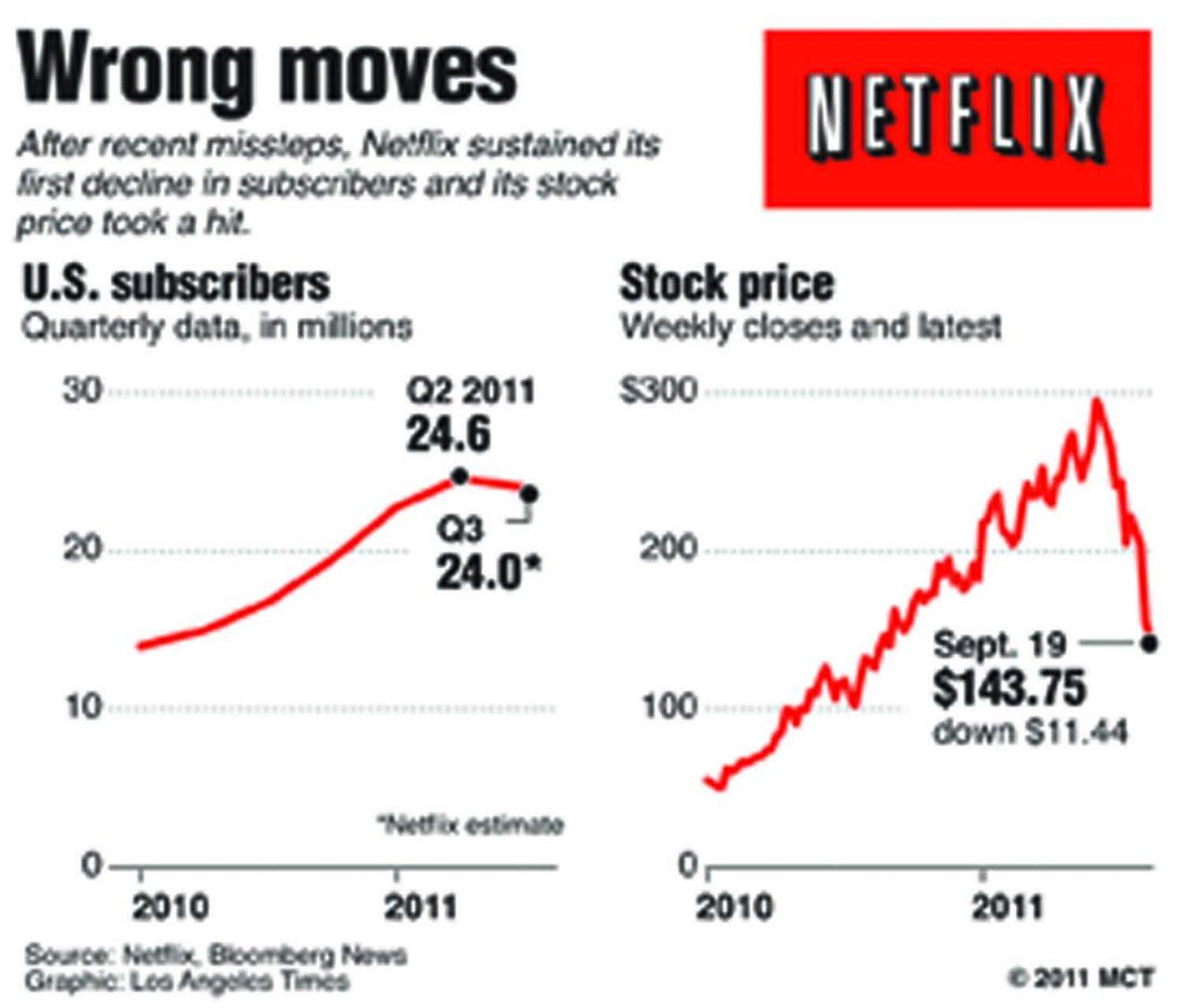Netflix Ignores the Customer for Its Own Private Gains
Changing Its Prices Won’t Help Netflix in the Long Run, But Listening to Our Complaints Might
October 5, 2011

Netflix was once the golden bastion of movie rentals. But its recent price increase and decision to split its combined rental and unlimited streaming plan into two separate services has outraged customers and caused them to cancel their Netflix subscriptions in record numbers: the worst in the company’s history.
Customers have good reason to be mad. The split means that they will not only have to pay more to retain both services but will also now have to use two different websites to order from the same company (the DVD rental service will now be called Qwikster, while the online streaming will still be Netflix). While the combined plan cost $9.99 per month, rental and online streaming now cost $7.99 each. If there is anything Netflix can learn from this ruckus, it’s to listen more carefully to its customers. Because the fact is that customers will always go for the cheapest and most convenient option.
Netflix’s sudden and drastic change is actually part of a shrewd long-term plan to ease the company’s transition into and survival in a possible future where the very foundation it has built itself upon no longer exists. Netflix is preparing for a day when DVD rentals become obsolete and online streaming becomes the predominant method of movie-viewing. The price increase will therefore provide the company with more capital to direct into online streaming.
A 60 percent price increase doesn’t seem like any sort of gradual easing. Netflix has built a reputation on convenience and an affordable subscription price value. Veering away from these established precedents is a betrayal. And if the company is going to raise the cost, why not at least keep the two services under the umbrella of the Netflix name?
The two names and websites cause not only confusion but inconvenience. Customers have to enter their information separately into both sites and manage two accounts. And if there’s one thing customers hate more than having to pay more, it’s inconvenience. Netflix is not only losing customers; it’s losing the full potential of its profit, since many people who are not cancelling their accounts altogether are simply choosing to retain one service (either the streaming or the DVD rental) rather than pay for both.
Netflix is wrong to think DVDs will soon turn to dust. The company’s overreacting. Netflix’s strength was that it offered customers several options of how they wanted to watch their movies before anyone else did. Customers could watch streaming video on their computer or pop in a DVD and watch a movie on an actual TV screen. For college students especially, the convenience of having a DVD delivered to you is unparalleled. While Quinn Library’s AV Room has a substantial collection of films and television programs, its selection is still limited, especially when it comes to more recent releases.
Although this decision isn’t doing Netflix any favors, the hullaballoo over it certainly says something about the power the company holds. Netflix isn’t obsolete. If I had a penny for every time I heard someone say they are going to get a movie from Netflix…well, I’d probably be able to pay the monthly fee (both of them). While there are other methods of renting movies, Netflix is still the leader. Services like iTunes and Blockbuster are still more expensive and the options more limited.
Netflix’s decision shows a bit too much overconfidence, but I think the company has built up enough of a name that this won’t necessarily translate to its death. It’s possible that the current massive drop in customers will be temporary, or that it won’t be substantial enough to cause any drastic outcome like bankruptcy. However, Netflix has only been around for 10 years; it’s still too new a company to expect to retain its loyal following no matter what.
Netflix may not be obsolete yet, but it’s becoming so for me, one of their unhappy customers. I’ve canceled my DVD subscription, only to be met with a rude email ordering me to ship back the last DVD I received within the next seven days or be fined $15. I’m planning on cancelling my streaming plan because Amazon Prime has free unlimited streaming as part of their membership at just $80 a year.
While it’s important for companies to adapt to changing markets, it’s more important for them to listen to the people who put them in power. I hope that the uproar over this recent decision prompts Netflix to at least reconsider their decision, if not revoke it. If not, they should be prepared for some other company to step in and do what they have been doing for all this time—only better.









